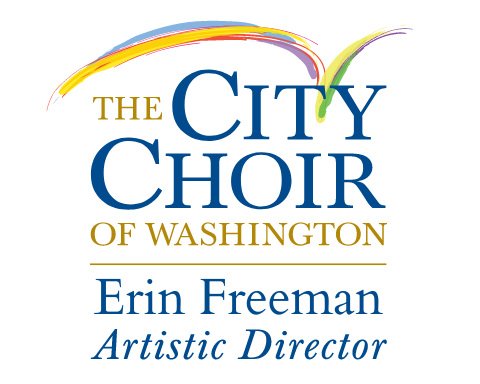Behind the Music: Stories of Loves, Losses & Connections
Many of the songs on City Choir’s “Songs of Love, Loss & Connection” program have histories that resonate with the concert’s themes. Composer Dede Duson dedicated our opening song, Of Love, to her parents, speaking to familial love. Erin Freeman, Artistic Director of the City Choir of Washington, sang Duson’s arrangement of “Danny Boy” (also on the program) when she was in children’s choir and never forgot it.
Composer Jake Runestad tells a heartbreaking story about the evolution of Let My Love Be Heard: “Though originally written for Choral Arts Northwest, this work has taken on a new life in light of the [November 2015] atrocities in Paris and Beirut. Jonathan Talberg, the conductor of the choir at Cal State Long Beach, led his singers in a performance during the memorial vigil for Nohemi Gonzalez, a Long Beach student who was killed in the Paris attacks. The day after the vigil, the choir was supposed to begin rehearsing holiday music; however, Jonathan felt that was not appropriate and wanted time for the singers to grieve this loss. So, at the beginning of rehearsal, he passed out a brand new piece of music (‘Let My Love Be Heard’), rehearsed it, and then recorded it. It was posted on SoundCloud and shared in memory of Nohemi and as a plea for peace. Their musical offering is a powerful outpouring of grief but also a glimmer of light. I am honored that this piece, ‘Let My Love Be Heard,’ has helped to provide hope in the darkness of our world.”
In O Guiding Night, British composer and baritone Roderick Williams has written a stunning setting of the 16th century Spanish mystic St. John of the Cross’s poem “Dark Night.” This is a love song to the power of God, where the Soul (on a “dark night”—a crisis of faith) reunites with her Beloved (God). The piano accompaniment, masterfully played by City Choir’s own Peter Uhlir, guides the voices through evocative darkness, rhapsody, and even to what Erin Freeman describes as a “Sondheim moment.” Williams is one of England’s most sought-after composers and singers, and he both sang and saw one of his pieces performed at the coronation of King Charles III.
Eric Whitacre describes the genesis of Five Hebrew Love Songs in his own words: “In the spring of 1996, my great friend and brilliant violinist Friedemann Eichhorn invited me and my girlfriend-at-the-time Hila Plitmann (a soprano) to give a concert with him in his home city of Speyer, Germany. We had all met that year as students at the Juilliard School, and were inseparable.
“Because we were appearing as a band of traveling musicians, ‘Friedy’ asked me to write a set of troubadour songs for piano, violin and soprano. I asked Hila (who was born and raised in Jerusalem) to write me a few ‘postcards’ in her native tongue, and a few days later she presented me with these exquisite and delicate Hebrew poems. I set them while we vacationed in a small skiing village in the Swiss Alps, and we performed them for the first time a week later in Speyer.
“In 2001, the University of Miami commissioned me to adapt the songs for SATB chorus and string quartet…
“Each of the songs captures a moment that Hila and I shared together. ‘Kalá Kallá’ (which means ‘light bride’) was a pun I came up with while she was first teaching me Hebrew. The bells at the beginning of ‘Éyze Shéleg!’ are the exact pitches that awakened us each morning in Germany as they rang from a nearby cathedral.”
Whitacre and Plitmann married in 1998 and divorced in 2017, an example of both the power of love and its sometimes ephemeral nature.
Don’t miss the City Choir of Washington’s performance of the music of Duson, Runestad, Williams & Whitacre on March 17, 2024! Get your tickets now:







